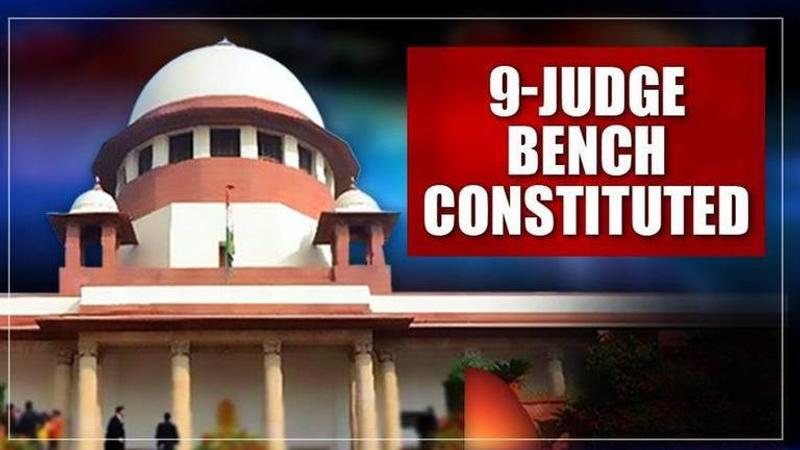Published 18:50 IST, January 7th 2020
Sabarimala review: CJI Bobde to head 9-judge Constitution Bench
The Supreme Court set up a 9-judge Constitution Bench headed by Chief Justice Sharad Arvind Bobde to hear the right to pray matter from January 13 onwards.

On Tuesday, the Supreme Court constituted a 9-judge Constitution Bench headed by Chief Justice Sharad Arvind Bobde to hear the 'right to pray' matter from January 13 onwards. The other judges in the Bench are Justices Banumathi, Ashok Bhushan, L Nageswara Rao, Mohan Shantanagoudar, Abdul Nazeer, R Subhash Reddy, BR Gavai and Surya Kant. This development comes nearly two months after a 5-member Constitution Bench comprising former Chief Justice Ranjan Gogoi, Justice Nariman, Justice Khanwilkar, Justice Chandrachud and Justice Malhotra decided to expand the scope of the Sabarimala review pleas and referred it to a larger bench for adjudication.
The majority judgment expands the scope of Sabarimala matter
The majority judgment had referred a whole range of issues including the entry of women in mosques and the tower of silence, the legality of female genital mutilation in the Dawoodi Bohra community along with the Sabarimala matter to a larger bench. Former CJI Ranjan Gogoi observed that both sections of the same religious groups had the right to propagate religious practices. Thereafter, he added that the issues arising in the present case and regarding Muslim women and Parsi women may be overlapping. Furthermore, he contended that it was high time that the SC evolved a judicial policy to do justice to constitutional principles.
Dissenting judgment
Justice Nariman and Justice Chandrachud wrote the dissenting judgment. Justice Nariman stated that the issues of Muslim or Parsi women could not be clubbed with the Sabarimala matter as they were not before the court. He opined that the original judgment was based on a bonafide Public Interest Litigation which raised the issue about women being denied entry on the basis of their physiological features. Making strong remarks against the violent agitations following the original SC verdict, Justice Nariman deemed that while bonafide criticism of the judgment was permissible, thwarting the orders of the court could not be countenanced. He noted that once a judgment was pronounced, it was binding on all.
Updated 18:50 IST, January 7th 2020




